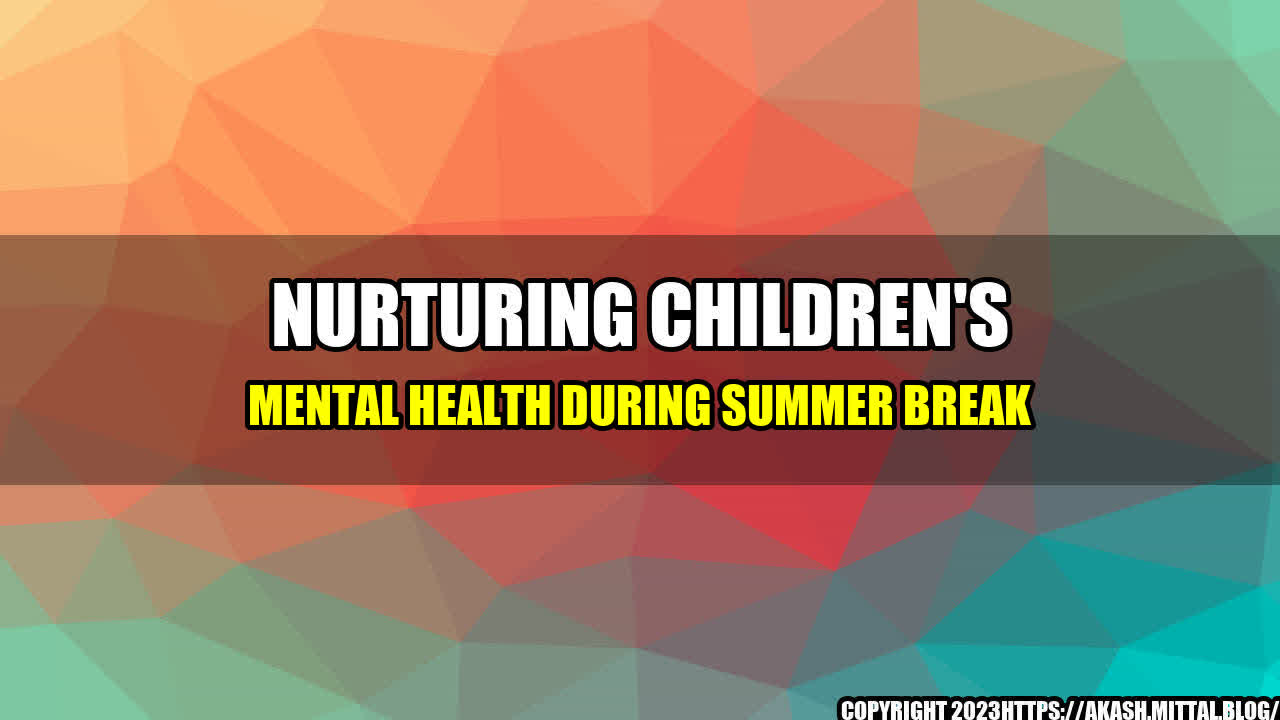According to the American Psychological Association, nearly one-third of children experience some type of anxiety disorder at some point in their lives. After the year-long pandemic, most children have faced some form of emotional distress such as loneliness, anxiety, fear, and uncertainty.
Caroline, an 8-year-old girl, has been struggling with separation anxiety for months. Her parents have had to work from home due to the pandemic and have been around her constantly. With schools closed, Caroline is afraid of returning to a school setting and being away from her parents. Her parents are worried about how she will cope during summer holidays and prepare her for the upcoming school year.
This is a common problem that many parents face, but there are various ways that parents can help their children cope and manage anxiety while maintaining good mental health during summer breaks.
Research conducted by the National Summer Learning Association (NSLA) shows that students who don't engage in any summer learning activities tend to lose two to three months of their grade-level equivalent in reading and math skills. Furthermore, the NSLA found that socio-economically disadvantaged children who didn't engage in summer learning lost up to three months more than their peers.
Engaging children in activities that challenge their minds can keep their brains active and prevent learning regression. Summer camps, reading programs, and virtual learning opportunities are great ways to keep children's minds active.
and Case Studies
Mark is a 15-year-old boy who had been looking forward to summer break for months. However, with the pandemic still looming, Mark found himself feeling isolated and bored. His parents noticed that he was spending most of his time in his room, playing video games, and watching TV.
Mark's parents realized that he needed some form of excitement, so they decided to plan some fun activities that would help him make the most out of summer. They signed him up for guitar lessons, took him to a water park, and even planned a camping trip. These activities helped Mark to socialize and interact with other children his age while learning new skills.
Practical Tips
Encourage Physical Activity
Summer break is the perfect time to get children outside and engage in physical activity. Encourage your child to play basketball, ride a bike, or take a walk around the neighborhood. This helps children to release pent-up energy, manage stress, and even improve their mental outlook.
Create a Learning Routine
Do not let your child's progress decline during summer break. Encourage them to read, practice math skills, and other school-related activities. Create a routine where your child learns for an hour or two a day, this will help them maintain their skillset and perform better when school reopens.
Encourage Socialization
Socialization is important for children. Encourage your children to attend summer camps, make new friends, and engage in group activities. This helps them to learn how to communicate, socialize and build confidence. You can also organize play dates with other children in your neighborhood.
Conclusion
- Encourage Physical activity
- Create a learning routine
- Encourage Socialization

Curated by Team Akash.Mittal.Blog
Share on Twitter Share on LinkedIn